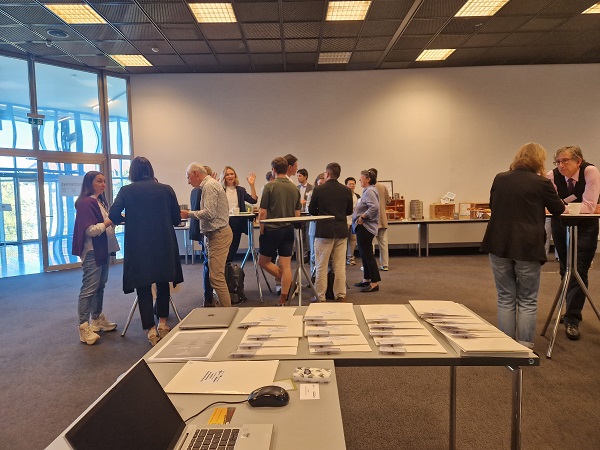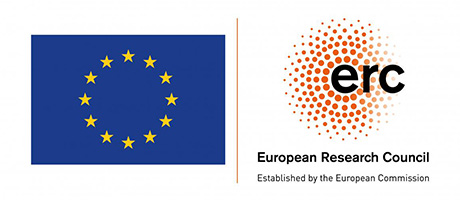Sino-European Relations: Developments and Trajectories Conference
The REDEFINE project, in collaboration with the Freie Universität Berlin, hosted the conference 'Sino-European Relations: Developments and Trajectories' on 21st September 2023 in Berlin. Academics and other practitioners from diverse social science disciplines gathered to discuss the opportunities and difficulties of Sino-European relations.

One of the key characteristics of the event was a strong onus on dialogue. As such, we opted for no PowerPoint presentations and, guided by a chairperson, allowed panellists and audience members more opportunity to engage with one another and foster more dialogic interaction.
The workshop began with a session on the role of non-state actors in these relations. Discussing the potential of continuing academic collaboration with China, Prof. Dr Sabrina Habich-Sobiegalla (FU Berlin) offered insights from a recent study with Chinese students in Germany and their educational experience in the country. Habich-Sobiegalla argued that universities in Germany (and Europe more widely) should consider carefully the consequences of ending collaboration with Chinese institutions, and that it is possible to reconcile academic freedom and academic cooperation with China. Ms. Andrea Braun Střelcová (Max Planck Institute for the History of Science) on the other hand, focused on the experiences of international academics in China and the increasingly tense environment under which they work, given both the travel restrictions due to the ongoing COVID-19 pandemic and geopolitical tensions, which have led to a significant reduction in their numbers. Finally, Dr Stefan Schmalz (Erfurt University) discussed the role of trade unions and business organisations in Sino-German relations. He argued that there is a growing ‘China threat coalition’ which has changed both national policy but also influences the European Union (EU). Resultingly, he argued, organised labour achieves more voice in policy negotiations and there is a reassertion of industrial policy as part of a reaction to Chinese takeovers.
In the second session, three scholars offered diverse perspectives on the tenth anniversary of the Belt and Road Initiative (BRI). Prof. Dr. Bettina Gransow (FU Berlin) explored the various narratives shaping the BRI, discussing its complexities in areas like green industrialisation, competition, and geostrategic goals. She questioned the underlying definitions of development, particularly considering the challenges posed by the COVID-19 pandemic. Dr. Filippo Boni (The Open University) shifted the focus to Sino-European relations, examining port investments as a case study. He contrasted Italy's enthusiastic engagement with China with Pakistan's more unilateral efforts to attract Chinese investment. Emphasising the importance of on-the-ground empirical evidence, Boni highlighted the need to consider local perspectives and the political economy of host countries, thereby moving beyond a purely global analysis. Finally, Dr. Ceren Ergenc (Autonomous University of Barcelona) discussed China's investment patterns in Turkey, questioning the extent to which the BRI has contributed to China's internationalisation. She stressed the need for cross-industry and cross-country comparisons and underscored a multi-actor landscape involving both Chinese and host-country variables. This aligns with the work being done by REDEFINE that amongst other topics, conducts comparative studies based on projects by the same Chinese company in different countries and similar projects by different Chinese companies in the same host country. Collectively, these presentations shed light on the complex and multifaceted nature of the BRI, underscoring the need for a nuanced approach that considers different geographical scales and various actors/agencies.
In the third session, two speakers shared their thoughts on the way(s) forward in managing Sino-European relations. Dr Ágota Révész (GFZ, Potsdam) insisted that on the one hand the EU should abandon the idea of Western cultural supremacy and continue dialogue with China, while on the other, the EU must strengthen its normative power. She also criticised the dominant discourse of de-coupling and advocated for a multipolar world order. This final point was particularly challenged by some audience members who were more concerned about security and argued that bipolarity or multipolarity was not a matter of choice, but a result of structural shifts. Agreeing with Dr Révész on the point that the EU should step up and take the lead in shaping future Sino-European relations, Prof. Dr. Jörn-Carsten Gottwald (Ruhr University, Bochum) warned the ‘Taiwan issue’ was a ticking time-bomb and argued that it needed to be handled in a balanced manner that reflected the EU’s values as well as the One-China policy. He argued that Sino-European relations were quite institutionalised and that, rather surprisingly, the EU has since 2019 had a coordinated China policy. When asked about the role of non-state actors in Sino-European relations, he considered corporate interests would play a lesser role.
This thought-provoking one-day event aimed to connect REDEFINE with individuals and organisations working at various levels of Sino-European cooperation. By doing so, the conference effectively brought together diverse people with different aims and will continue to build on this success with a similar but larger conference in 2024 held in Manchester.

Get in touch
Contact the team at [email protected]
or write to us at:
REDEFINE PROJECT
Faculty of Arts and Social Sciences
The Open University
Milton Keynes
MK7 6AA
UK

